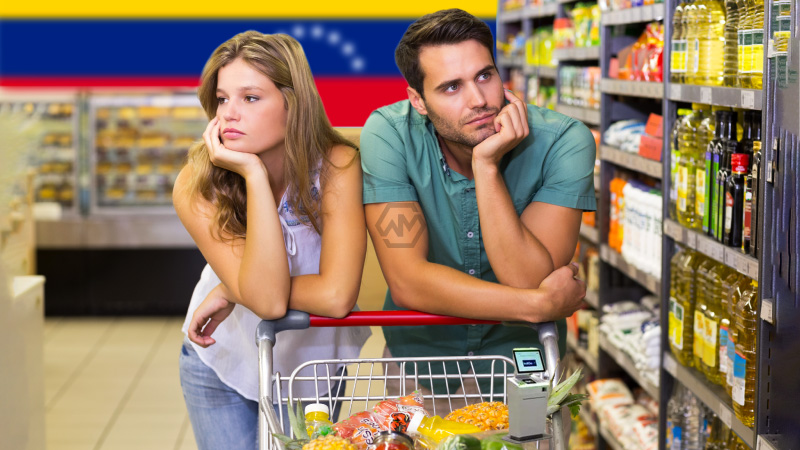- President Maduro declares an “economic emergency” as the bolivar crashes and inflation surges past 180%.
- U.S. sanctions and election fraud fallout have crippled oil revenues, worsening Venezuela’s long-standing crisis.
- Everyday life is increasingly unaffordable, pushing citizens toward despair despite limited migration options.
Once hailed for a brief post-pandemic recovery, Venezuela’s economy has entered another phase of collapse. The government’s attempt to stabilize the bolivar by injecting U.S. dollars into the market has failed. As foreign currency reserves dwindle and sanctions tighten, the situation worsens.
Beyond macroeconomics, the effects are personal and painful. Informal workers like fishermen and taxi drivers, who were already on the margins, now face dwindling income. They also face skyrocketing costs for basic necessities.
Venezuela on the Brink: Sanctions, Inflation, and Public Despair Collide
Venezuela’s currency crisis, fueled by renewed U.S. sanctions and dwindling oil income, has pushed the economy into a tailspin. With the black-market exchange rate surpassing 100 bolivars per dollar, prices for everyday goods have skyrocketed. The official exchange rate has become largely irrelevant in informal markets. This divergence has made food, medicine, and other essentials increasingly inaccessible to the average citizen.
The so-called “economic renaissance” in Caracas — marked by new restaurants, delivery apps, and dollar transactions — never reached cities like Maracaibo. There, shuttered businesses and empty shelves tell a different story. While Caracas projected an image of recovery, much of Venezuela remained stuck in survival mode. They are dependent on informal labor and fluctuating black-market currency values.
Maduro’s emergency decree includes proposals such as suspending tax collections and mandating domestic purchases. However, economists argue these are superficial solutions. They do not address the core issues of production, investment, or trust in institutions. Many private companies are downsizing or reverting to bolivar payments, further inflating demand for scarce U.S. dollars.
Socially, a sense of helplessness prevails. Citizens like Erick Ojeda and Jonatan Urdaneta illustrate the emotional toll of the crisis. They work long hours for minimal pay and are unable to migrate due to tightened border policies. They cling to faith or luck in hopes of improvement. Once a regional powerhouse, Venezuela now teeters under the weight of compounded political and economic mismanagement.
Venezuela’s worsening economic crisis reflects a nation trapped in a cycle of broken systems. Resilience is abundant, but opportunities are not. Without structural reform and international credibility, hope alone won’t be enough to spark recovery.
“We keep going trusting God. Let’s see if God works miracles to fix all of Venezuela.” – Erick Ojeda, 24, fisherman



